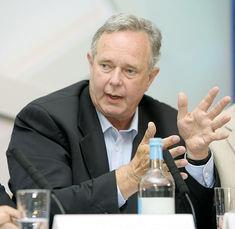
A new investigation from the Soil Association claims that the widely used statistics on the need for increased food production are based on a “big fat lie”.
Telling porkies: The big fat lie about doubling food production reveals that all those claiming we need to double global food production by 2050, or 50 per cent by 2030, are “wrong about the figures, are wrong about what the figures apply to, and are wrong to claim that achieving these figures will mean we will feed the hungry or end starvation”.
Experts including the UN secretary general, the UK government’s chief scientist, DEFRA secretary Hilary Benn MP, the Conservative Party, the National Farmers’ Union and Monsanto, have all backed claims that we need to increase food production 50 per cent by 2030 or that it needs to double by 2050.
The scientific basis for the claims is an FAO report which on close inspection states production would need to increase by around 70 per cent, not 100 per cent.
As the government states this is a significant difference. The closest the report comes to the doubling claim is projecting that meat consumption in developing countries, except China, could double. The scientific paper that the 50 per cent by 2030 claim is based on appears to have been withdrawn by the authors.
The Soil Association opposes the widely claimed notion that the demand for increased production by use of GM methods.
Peter Melchett, Soil Association policy director, said:“The ‘big fat lie’ of needing to double global food production by 2050 has dominated policy and media discussions of food and farming, making it increasingly difficult for advocates of sustainable farming methods, such as organic, to convince people we can actually feed the world without more damage to the environment and animal welfare.”
But the Soil Assocations claims were shot down by a rival paper, commissioned by the Crop Protection Association (CPA) which claims a ‘Green Revolution’ is needed.
The report by Séan Rickard of the Cranfield School of Management says it is not a question of getting facts wrong, but of assessing the probability of different outcomes.
Rickard said: “Ensuring food production keeps pace with global population growth, and is distributed equitably and affordably, will involve ‘quantum jumps’ in the productivity of key commodities. With limited land available to bring into agricultural production, most of the increase will have to come from higher yields: in short, more productive farming systems.”
CPA chief executive Dominic Dyer said it was not the time to split hairs on this issue or downplay the challenge of global food security: “All forecasts point to significant growth in global food demand, which must be addressed in the face of climate change and declining reserves of land, water and fossil fuels. Whether it’s a 70 per cent or 100 per cent increase is hardly the point - it cannot be met without investment in and access to the most advanced developments in agricultural science and technology, including biotechnology and crop protection.”



